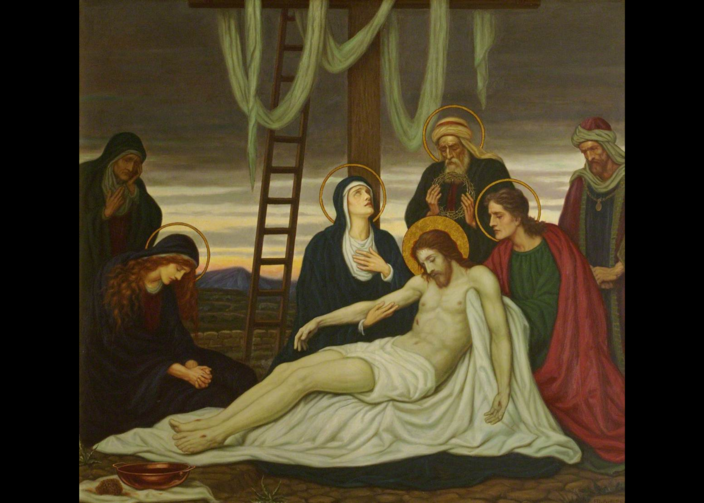A Homily for Palm Sunday
Readings: Mark 11:1-10 Isaiah 50:4-7 Philippians 2:6-11 Mark 14:1-15:47
Pilate was punctilious. However else you might evaluate him, give him that. The Jewish historian Josephus reports him being removed from office for excessive violence against Jewish insurgents, but Pontius Pilate’s relatively long rule suggests a capable administrator.
Why punctilious? St. Mark records a detail absent from the other Gospels. When asked to release the body of Jesus,
Pilate was amazed that he was already dead.
He summoned the centurion
and asked him if Jesus had already died.
And when he learned of it from the centurion,
he gave the body to Joseph (Mk 15:44-45).
Of course, this is an essential duty of a judge who orders an execution: to ensure that the condemned is indeed dead before releasing the body. Jesus would not have been the first, or the last, condemned man to survive execution, and no small amount of trouble would have been caused by his re-emergence, alive, after the event.
Despite Pilate’s surprise, Jesus was indeed dead. But the Roman governor is not alone in struggling to comprehend the sheer reality of death. As a pastor of a small parish, I am almost always around when someone dies. In my experience, almost everyone has difficulty taking in the fact of death. This is certainly understandable when the death is sudden and unexpected, but it happens even at the close of long hospice care. Loved ones shift their attention from care of the dying to preparation for the funeral. They just keep working; they will take it in later.
Whether sudden or long anticipated, the realization that a loved one is gone takes time. It comes slowly and repeatedly in unpredictable waves of realization.
It matters greatly to the good news of the Gospel that Jesus was indeed dead. It forms the basis of the church’s earliest preaching and her first creeds. All these early sources insist that Jesus died and that he stayed dead for three days.
Why does this matter? Because death is the far point of our alienation from God. Because to die is to enter a darkness that emits no light. Because in the understanding of all peoples—before the resurrection of Christ—the only thing that might survive death is the solitary consciousness of a soul knowing that all is lost.
Psalm 6 is a prayer for last-moment deliverance. It perfectly expresses the Hebrew conception of death. The dead may retain consciousness, but they do not hope. They do not praise God.
Return, Lord, rescue my soul.
Save me in your merciful love;
for in death no one remembers you;
from the grave, who can give you praise? (Ps 5-6)
Jesus does not just skim the surface of death. He does not shut his eyes only to awaken immediately. No, he descends into the underworld for three days. And before this three-day descent becomes his triumphal harrowing of Hades, it is Jesus’ utter solidarity with our situation before God. We were those destined to go down into death, into silence, into powerlessness, into the loss of all hope.
In the words of an ancient, anonymous homily composed for Holy Saturday:
Today there is a great silence over the earth, a great silence, and stillness, a great silence because the King sleeps; the earth was in terror and was still, because God slept in the flesh and raised up those who were sleeping from the ages. God has died in the flesh, and the underworld has trembled.
Before Christ’s resurrection, only consciousness survived death, an awareness that all was lost, drowned beneath endless waves of darkness. A punctilious Pilate confirmed this as Christ’s fate. For three days Jesus is lost to death. Yes, when he returns, he will bring Adam’s lost army with him, but before that, he indeed goes down, down into depths we cannot fathom.
None of us can take death in. It stands at the end of life, beyond life and its imagination. But we call this week holy because, in the coming day’s mysteries, speculation in the face of death gives way to revelation. In the words of Philippians, one man went “under the earth,” and in doing so he transformed death from eternal darkness into everlasting light.
He humbled himself,
becoming obedient to the point of death,
even death on a cross.
Because of this, God greatly exalted him
and bestowed on him the name
which is above every name,
that at the name of Jesus
every knee should bend,
of those in heaven and on earth and under the earth,
and every tongue confess that
Jesus Christ is Lord,
to the glory of God the Father (Phil 2:8-11).








